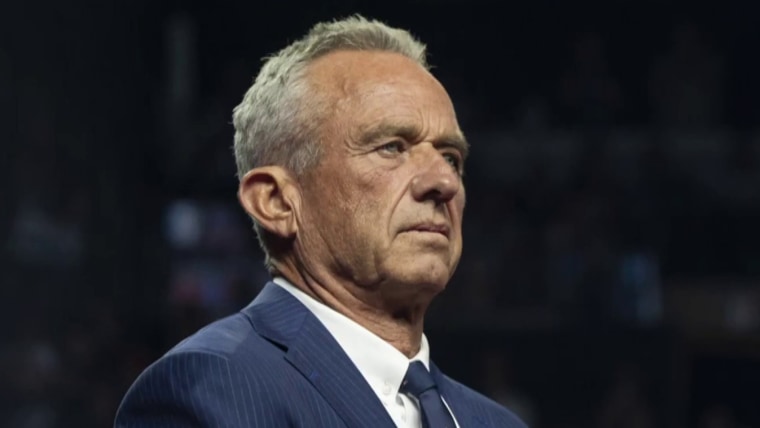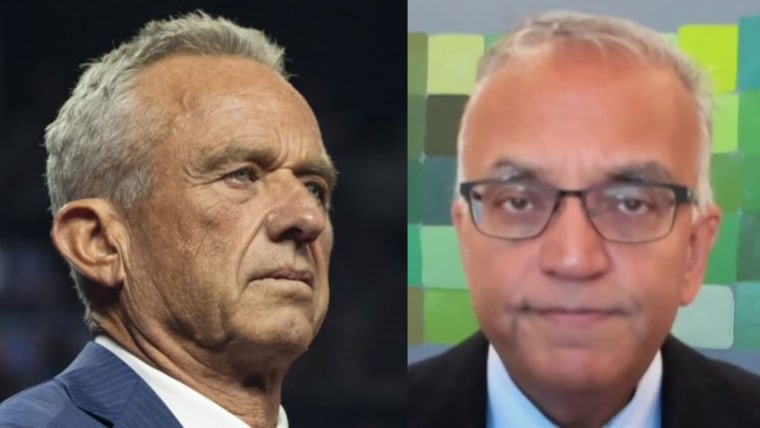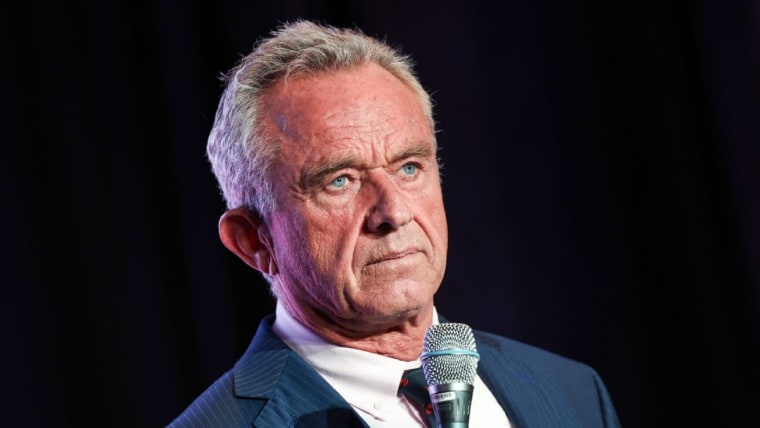President-elect Donald Trump’s announcement Wednesday that Robert F. Kennedy Jr. is his pick for secretary of Health and Human Services symbolizes a major regression when it comes to the humane treatment of autistic people. By picking Kennedy, he is wrongly elevating someone who sees autism, and therefore autistic people, as problems to be solved. He doesn’t see us as having a disability that deserves to be accepted.
He believes that autistic people are largely the result of vaccines, making us evidence that Big Pharma is a danger.
The Kennedy pick also symbolizes a moral loss. Not just because of his opposition to vaccines, but also because of his opinions of autistic people. Of course, he believes that autistic people are largely the result of vaccines, making us evidence that Big Pharma is a danger.
If Kennedy becomes HHS secretary, he would likely cause incalculable harm.
The Interagency Autism Coordinating Committee, the advisory committee that gives guidance for autism and is housed within HHS, has gone to great lengths to include autistic self-advocates, including some who are nonverbal or who have intellectual disabilities. This has been a welcome change from the past, when autistic people were not seen as the equals of their parent advocate and researcher counterparts.
In 2020, the most recent numbers we have available, the U.S. government and private foundations spent about 45.4% of the $418 million it spends on researching autism looking into “biology,” while only 4.3% went to researching lifespan issues and only 8.4% went to services and support. And while those sound like a drop in the bucket (and they are), it’s actually an improvement from previous years when private foundations and the government spent even less on services and lifespan issues. In addition, the National Institutes of Health, which falls under the HHS jurisdiction, funds most research about autism.
Kennedy could take a sledgehammer to all of this and divert resources toward his own cockamamie views about autism. Kennedy has often claimed that “only 1 child in 10,000 was diagnosed” with autism in 1970, noting that far more children are being diagnosed now.
He refuses to see that the spike in autism diagnoses represents a major accomplishment in terms of the intersection of autism and public policy. Autism did not get a separate diagnosis from schizophrenia in the Diagnostic and Statistical Manual of Mental Disorders (DSM) until a decade later.
The criteria would expand and change to include Pervasive Developmental Disorder Not Otherwise Specified and Asperger’s syndrome in 1994. In 2013, the conditions would be put under the umbrella category of Autism Spectrum Disorder (ASD).
Kennedy could take a sledgehammer to all of this and divert resources toward his own cockamamie views about autism.
All the while, the Individuals with Disabilities Education Act required that schools report the number of disabled students that it served, which included autism. The previous version of the law had not included autism, so it stands to reason that, after the law was updated, the number of autistic people diagnosed would increase.
Instead of those numbers being celebrated, and instead of people such as Kennedy asking how society should adjust to accommodate autistic people, they’ve used language about an “epidemic,” as Trump did during a Republican primary debate in 2015: “Autism has become an epidemic. Twenty-five years ago, 35 years ago, you look at the statistics, not even close. It has gotten totally out of control.” Trump said then, “I am totally in favor of vaccines. But I want smaller doses over a longer period of time.”
Autism previously had the unfounded reputation as being caused by unloving mothers. Now people like Kennedy have linked it to vaccines. But then and now autism has been treated as a sign of parental failure.

This makes Kennedy’s fearmongering especially pernicious and, honestly, effective. Nicole Shanahan, Kennedy’s running mate for his failed presidential campaign, said she eventually made her way to Kennedy after her daughter Echo’s autism diagnosis and after a neurosurgeon-turned-health guru who lives in El Salvador told her she was to blame for Echo’s autism — in part because of the vaccines the child had received.
When parents are overwhelmed with information and hear their children have a condition that has long been described as a death sentence, Kennedy and other hucksters offer them someone to blame in the form of doctors and pharmaceutical companies, rather than taking actionable steps to help them navigate a new world.
Even though their linking of vaccines to autism has no merit, Kennedy and other vaccine opponents illustrate the belief that having a developmental disability is worse than risking getting a deadly disease that a vaccine could prevent.
When parents hear their children have a condition that has long been described as a death sentence, Kennedy and other hucksters offer them someone to blame.
Public policy has shifted in recent years. The name of the legislation regarding autism was changed from the Combating Autism Act to the Autism CARES Act. In 2016, Hillary Clinton became the first presidential candidate to release an autism specific policy platform, and in 2020, Democratic presidential candidates released disability policy platforms and consulted autistic self-advocates. Autistic people even delved into electoral politics in both parties and won in places like Pennsylvania, Texas and New York.
In addition, autistic self-advocates achieved a major policy. For years, they had pushed lawmakers to ban shock therapy at the Judge Rotenberg Center, a residential school in Canton, Massachusetts. The United Nations went as far as to call it torture.
The Food and Drug Administration, during the Trump administration, took a swing at banning the practice, and Lara Trump even touted it at a disability forum in 2020, before a court overturned the ban.

In 2022, Congress included language in its annual spending bill allowing the FDA to ban the use of shock therapy. That alone felt like a victory: Trump felt at least obligated to pretend to care about autistic people and a Democratic Congress took action to fix a problem. Now that feels like just a temporary victory.
The progress we’d made toward treating autistic people more humanely makes the backsliding that is the RFK pick all the more demoralizing. There had been significant bipartisan efforts toward moving policy more toward acceptance and accessibility. Now, autistic people will just have to hunker down and endure an administration that sees us not as people but as evidence of the evils of vaccination.

